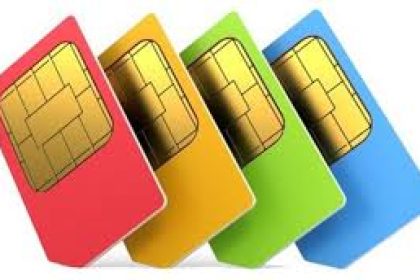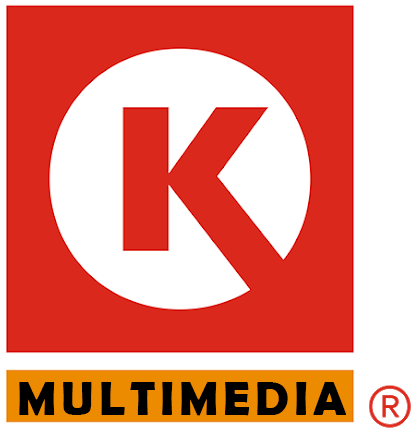
Nigerian telecommunications companies have started the last stage of disconnecting phone connections, or Subscriber Identity Module numbers, that are not associated with National Identity Numbers.
The PUNCH was informed on Sunday of this development by two top telecom executives who could not comment publicly on the subject.
The Nigeria Communications Commission decided to defer the disconnection from April 15, 2024 to July 31, 2024 after carefully examining the numerous issues raised by subscribers and their requests for extensions.
“This is an industry problem; it’s not just about MTN. One of the executives stated, “A statement from the Association of Licensed Telecom Operators of Nigeria will be shared very soon.
The other source claimed that the mandate came from the industry regulator, the NCC, and emphasised that many channels have been made available to make the procedure easier for users.
Customers are our subscribers; we cannot begin cutting them off from their service. It’s critical that these customers file complaints in order to associate their lines with NIN, the representative said.
Adeolu Ogunbanjo, the president of the National Association of Telecommunications Subscribers, did not respond to calls for comment.
There are worries, meanwhile, that the telecom companies disconnected phone lines before the deadline of July 31. Social media users are furious about this and have taken to sharing their stories and grievances with X.
Many consumers have complained that even after finishing the connection exercise and presenting proof of their compliance, their SIM cards were blocked.
Bashir Ahmad, the former president Muhammadu Buhari’s digital communications assistant, tweeted, “It appears MTN has blocked hundreds of numbers from their network today.” I am surrounded by many others who have complained about losing service. Has this problem been experienced by anyone else?
In a frustrated post, Kensola, a different user, said, “It still surprises me that my MTN line will just be blocked temporarily for no justification.” I’ve been connecting it to NIN for years. What’s the issue? Can we be certain that state actors aren’t attempting to silence dissenting opinions? Let’s all exercise caution!
“As far as I know, the phone numbers that were blocked have different SIM registration and NIN details,” Tall John stated. And I recall that public awareness was raised about how to resolve the issue and that SMS messages were even sent to the impacted phone lines. However, proponents of doomsaying claim that the network providers are blocking some phone lines due to the planned demonstration.
Jude Bela expressed doubts about MTN’s activities as well, saying, “MTNNG, what is the purpose of banning lines that are already connected to NIN? My phone was strangely disabled, but I just verified that my NIN is still attached. Nigerians are suffering from you at a very convenient moment. The inquiry is “Why.”
The directive from 2020 requiring telecom companies to prohibit SIM cards that aren’t connected to NINs is consistent with this order. According to the Federal Government, the decision was made in response to the persistent acts of terrorism, kidnappings, and banditry that occurred across the country in the final months of President Buhari’s term.
The PUNCH is aware that customers with four SIM cards connected to a single phone line are the target of this last stage of disconnection.
Three stages have been involved in the disconnection procedure, which got underway in February. On February 28, 2024, the first phase took place, and on March 29, 2024, the second phase.
About 40 million lines that were not connected to NINs were blocked, according to the industry regulator, at the first deadline on February 28, 2024.
Telecommunications companies, meanwhile, have placed the responsibility for the National Identity Management Commission’s tardiness in allowing requests from customers to link their phone numbers for verification.
They said that active customers who met the requirements but were not validated by the identity commission might be disconnected as a result of the problem that restricted the quantity of accepted verification requests to link their NINs during the previous extension period.
In an exclusive interview with The PUNCH on Sunday, Gbenga Adebayo, the chairman of the Association of Licensed Telecom Operators of Nigeria, revealed this information and voiced concerns that many active users could be barred if a solution is not offered by Tuesday.
He claimed that the Nigerian Communications Commission has been notified of the issue, and the telcos are now awaiting a response from the regulatory body via the proper channels.
The NCC ordered all telecom providers to implement complete network blocking of all SIMs that have not submitted their NIN by February 28, 2024, at the latest, in December 2023. Forty million phone lines were debarred as a result of this exercise.
Similarly, on April 15, 2024, clients who have filed their NINs but have not been validated were to be blocked. However, the deadline was moved to July 31, 2024. In addition, regulations were released stating that a subscriber is only permitted to have four active SIM cards, and that any additional SIM cards will be blocked by March 29, 2024.
This instruction is a component of the continuing NIN-SIM harmonisation effort by the Federal Government, which mandates that all customers update SIM registration records with authentic NIN information.
During the interview, the ALTON chairman provided an update on the matter, stating that the NIMC, not the operators, is in charge of verification and validation.
“Well, the verification turnaround is still a concern,” he remarked. We are still concerned because, as we all know, NIMC is the level at which verification and validation are carried out rather than the operator. However, we are giving our regulator the pertinent input and requesting their assistance when and when it is needed.
However, I have to say that there is still cause for concern regarding the turnaround time for verification, especially when it comes from the NIMC end. And we haven’t neglected to inform NIMC of that via the proper procedures.
In response to a question regarding the anticipated quantity of phone lines that this difficulty will impact, Adebayo stated, “I don’t have that amount in front of me right now. However, as I mentioned earlier, we are giving the NCC, our regulator, comments. And I’m sure the regulator will act responsibly if it becomes necessary to request an additional extension or review.
The ALTON chair clarified that only the regulator could make a final decision on the subject when asked if this might result in requests for more deadline extensions.
“We are giving our regulator comments right now. They offer the overarching direction that our sector needs. Accordingly, our regulator will decide based on the information we give them whether or not that will be necessary.
The telecommunications operator Airtel Africa stated in its financial statement for the first half of 2024 that it could lose up to $4 million in monthly revenue as a result of its continuous failure to authenticate the National Identity Numbers of around 4.9 million users.
The number of blocked lines has not yet been released by other major providers, but research indicates that MTN blocked subscribers who were not authenticated on Sunday.
Reuben Mouka, the NCC Director of Public Affairs, did not answer multiple calls to his phone lines, therefore attempts to contact him regarding the commission’s action on the matter and a potential extension were unsuccessful.
As of the filing of this article, Lanre Yusuf, the Director of IT/IDD at the National Identity Management Commission, had not responded to messages left on his line despite his commitment to do so.
As part of establishing transparency and integrity in the sector, telecom operators have stated that an ongoing audit of the industry billing system is underway.
According to the chair of ALTON, the project is a part of efforts to self-regulate the industry and address customer concerns about voice tariffs, data depletion, and other issues.
“Yes, there is an ongoing audit that is being conducted to evaluate the systems’ overall health. Additionally, it’s to strengthen openness on this matter of charging, data billing, data depletion, and dropped calls,” he said.

